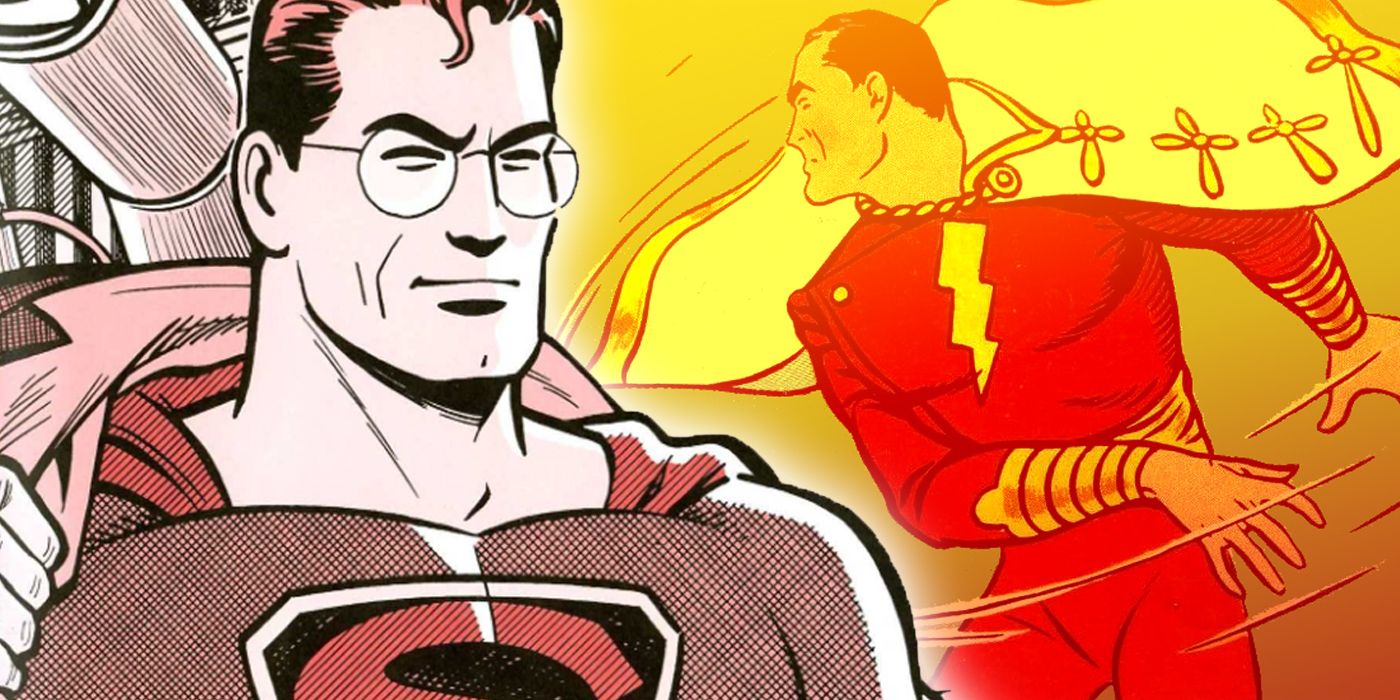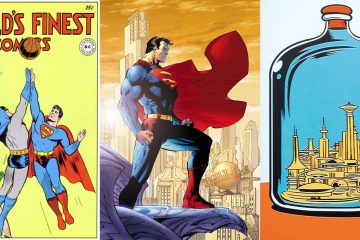When Superman blasted onto the scene in 1938’s Action Comics #1 (by Jerry Siegel and Joe Shuster), the world of comics was forever altered. Though their popularity would prove to vary over the decades, Superman’s emergence ultimately ushered in the age of superhero comics, an epoch that remains alive and well to this day. It’s no wonder, then, that imitators soon followed. Almost immediately, DC’s competitors were scrambling for the silver medal; they may not have been able to invent Superman, but they could copy him. The first to succeed in this was Fox Comics, who—as early as May 1939—debuted Wonderman in Wonder Comics #1 (by Will Eisner and Rick L. Philips).DC was swift to file a lawsuit, and a lengthy legal battle ensued. Fox Comics’ defense rested on an insistence that inspiration for Wonderman derived from the classical mythology of Hercules rather than the contemporary heroics of Superman. However, the similarities were impossible to ignore; indeed, the judge presiding over the case declared the only difference between the two characters was the color of their costumes. Predictably, Fox Comics lost the case, and the restrictions put upon future depictions of Wonderman left the hero essentially unusable. Having conquered the first pretender to Superman’s crown, DC was bolstered by their victory, confident that they could weather any further emulation that may come their way. No one could have guessed DC’s next legal clash would see the company briefly lose the rights to the Man of Steel.National Comics Publications, Inc. v. Fawcett Publications, Inc. ran in DC’s favor to begin with. The judge was swift in perceiving the irrefutable correlations between Superman and Captain Marvel. What’s more, he honed in on Doctor Sivana’s standing as a carbon copy of Lex Luthor while some Fawcett employees’ testimonials were nothing short of damning. Many took to the stand to state Fawcett’s high brass had flagrantly ordered them to copy Superman. However, despite this rocky start, throughout the trial, something unthinkable happened: the case gradually turned in Fawcett’s favor. Suddenly, a trial in which the resolution initially manifested as a foregone conclusion left DC clutching at straws.
When Superman blasted onto the scene in 1938’s Action Comics #1 (by Jerry Siegel and Joe Shuster), the world of comics was forever altered. Though their popularity would prove to vary over the decades, Superman’s emergence ultimately ushered in the age of superhero comics, an epoch that remains alive and well to this day. It’s no wonder, then, that imitators soon followed. Almost immediately, DC’s competitors were scrambling for the silver medal; they may not have been able to invent Superman, but they could copy him. The first to succeed in this was Fox Comics, who—as early as May 1939—debuted Wonderman in Wonder Comics #1 (by Will Eisner and Rick L. Philips).
DC was swift to file a lawsuit, and a lengthy legal battle ensued. Fox Comics’ defense rested on an insistence that inspiration for Wonderman derived from the classical mythology of Hercules rather than the contemporary heroics of Superman. However, the similarities were impossible to ignore; indeed, the judge presiding over the case declared the only difference between the two characters was the color of their costumes. Predictably, Fox Comics lost the case, and the restrictions put upon future depictions of Wonderman left the hero essentially unusable. Having conquered the first pretender to Superman’s crown, DC was bolstered by their victory, confident that they could weather any further emulation that may come their way. No one could have guessed DC’s next legal clash would see the company briefly lose the rights to the Man of Steel.
National Comics Publications, Inc. v. Fawcett Publications, Inc. ran in DC’s favor to begin with. The judge was swift in perceiving the irrefutable correlations between Superman and Captain Marvel. What’s more, he honed in on Doctor Sivana’s standing as a carbon copy of Lex Luthor while some Fawcett employees’ testimonials were nothing short of damning. Many took to the stand to state Fawcett’s high brass had flagrantly ordered them to copy Superman. However, despite this rocky start, throughout the trial, something unthinkable happened: the case gradually turned in Fawcett’s favor. Suddenly, a trial in which the resolution initially manifested as a foregone conclusion left DC clutching at straws.
#Briefly #Lost #Rights #Superman #40s
Note:- (Not all news on the site expresses the point of view of the site, but we transmit this news automatically and translate it through programmatic technology on the site and not from a human editor. The content is auto-generated from a syndicated feed.))



